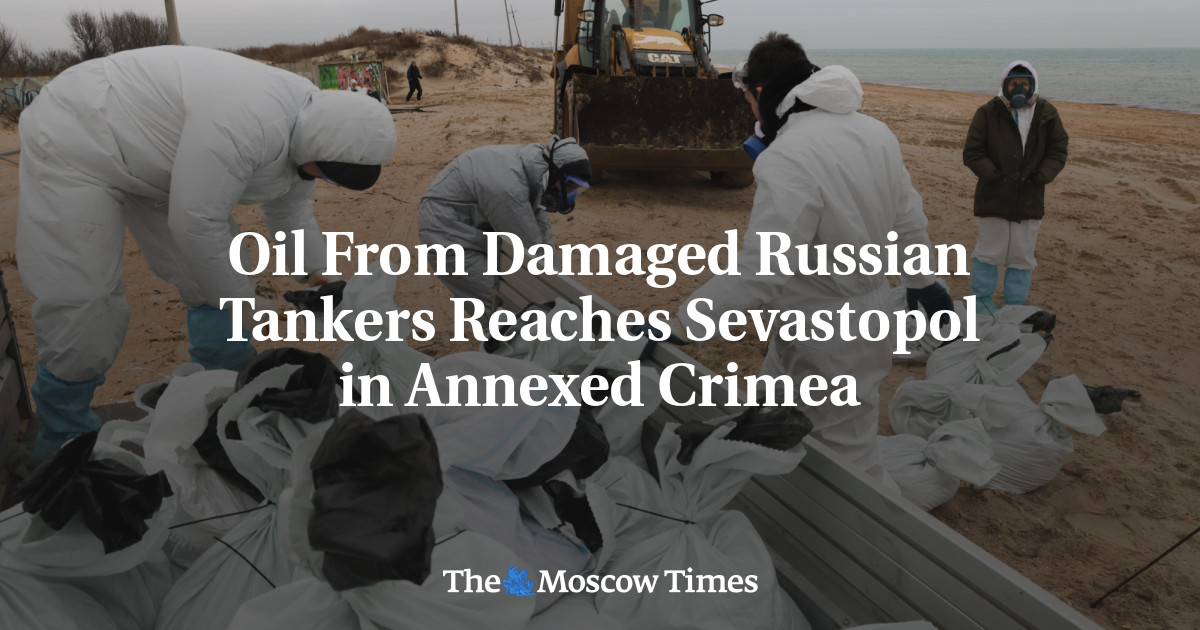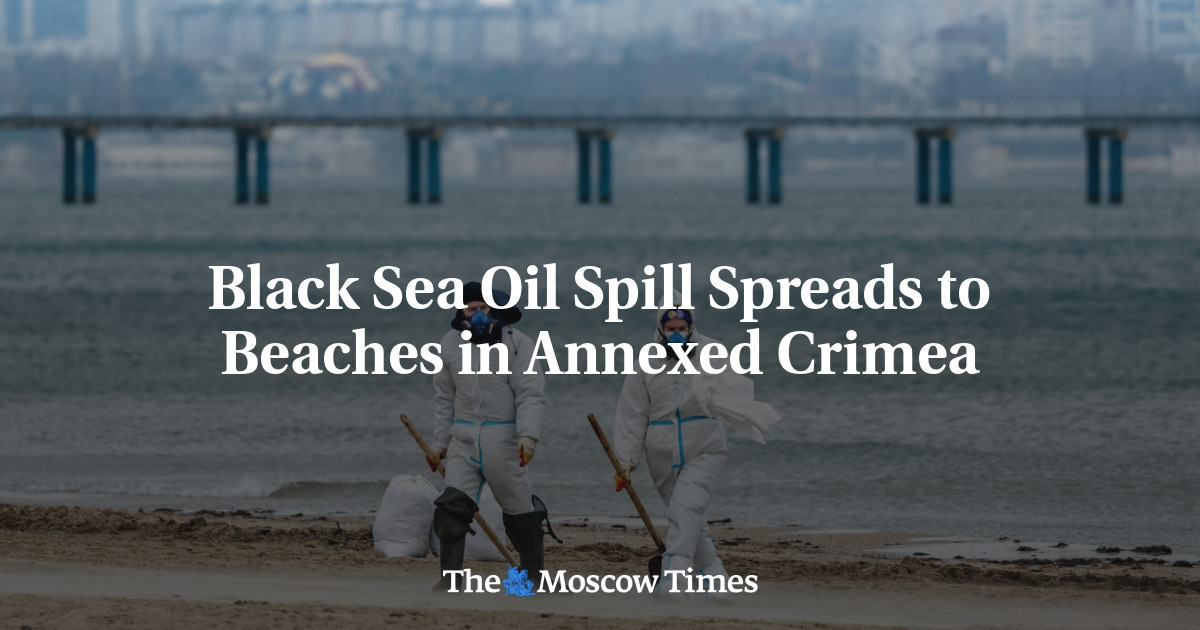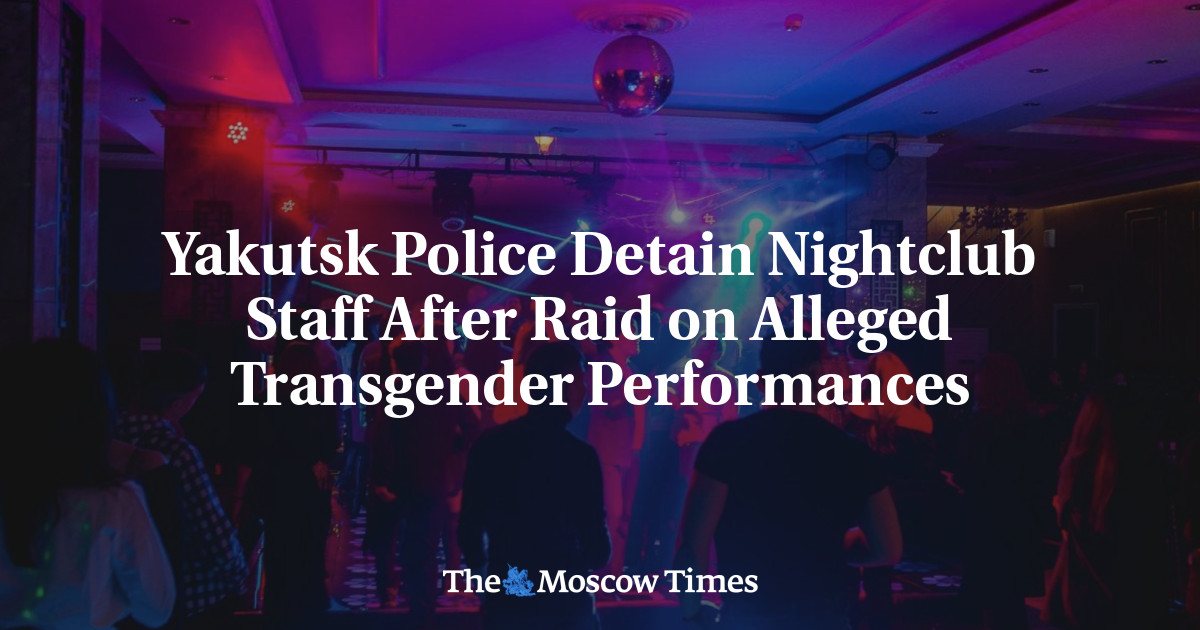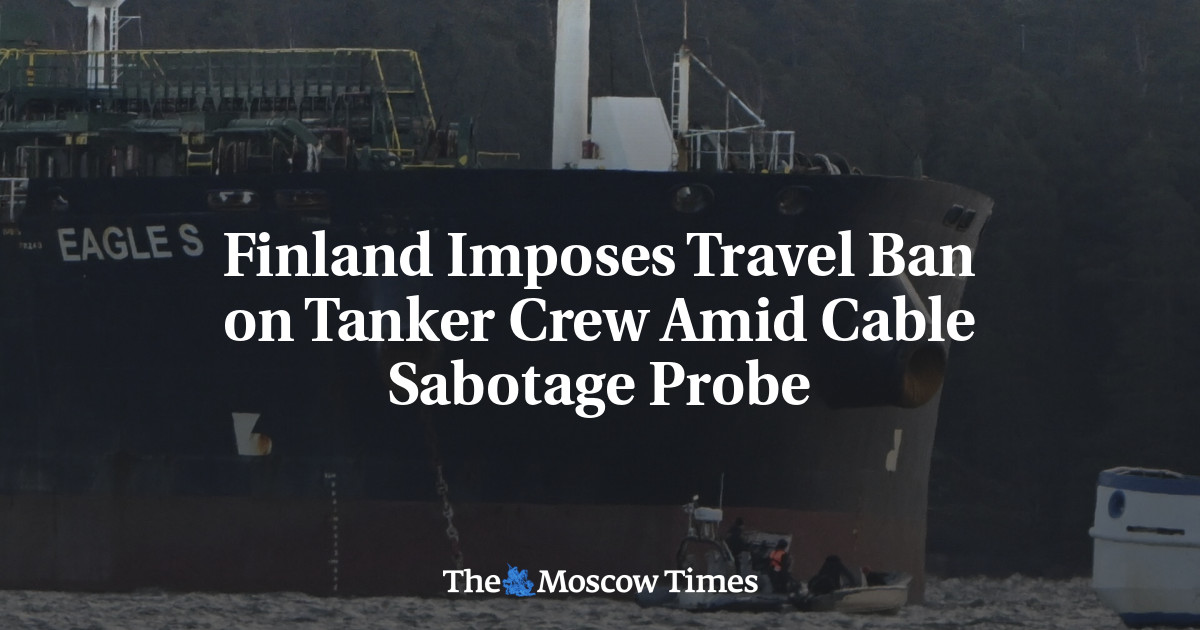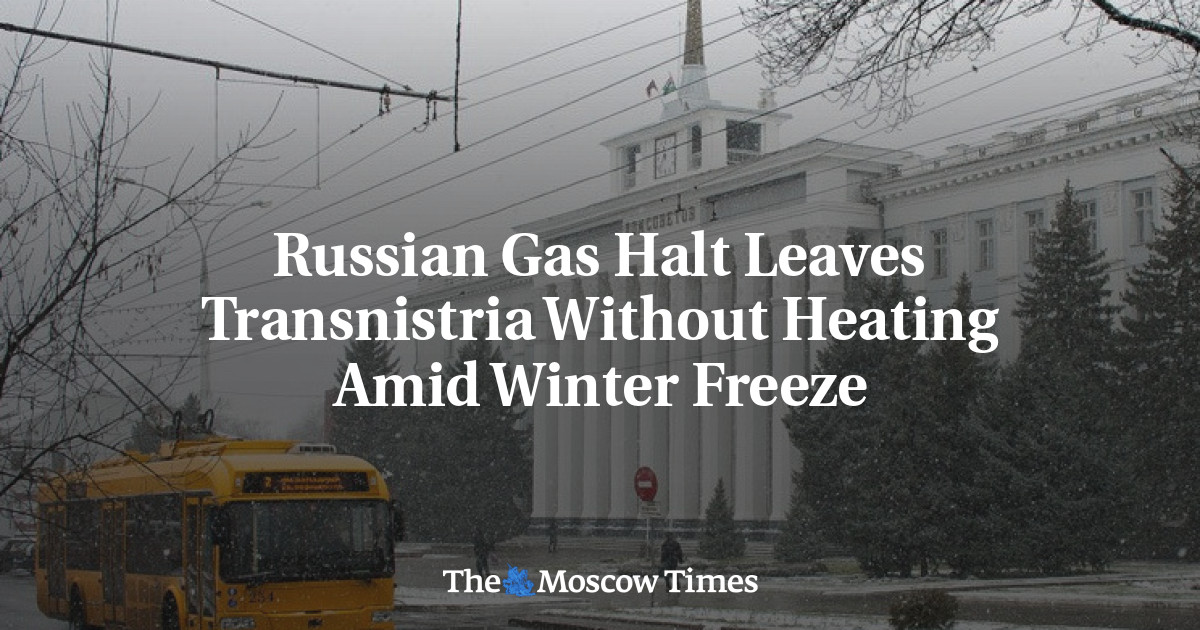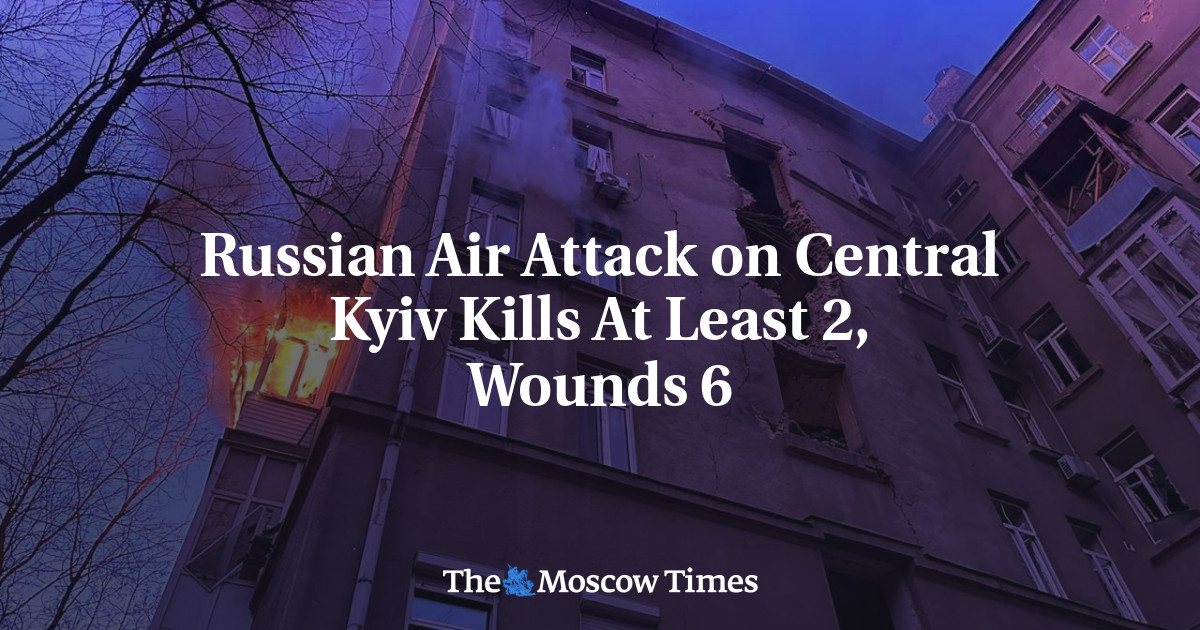IMATRA, Finland — At the edge of Imatra, a medium-sized Finnish town on the border with Russia, high snow drifts ensconce a shopping outlet that sits barren apart from a large “for sale” sign. Another sign on the building reads “Добро пожаловать!” — Russian for “welcome” — a reminder that just a few years ago, travelers from across the border would flock here to buy prized Finnish products like coffee, chocolates and cheese.
These days, the once-steady stream of traffic from Russia, initially hobbled by Covid-19 restrictions, has ceased entirely.
In mid-December, Finland closed all eight of its border crossings with its eastern neighbor, including the one in Imatra, over the arrival of around 1,300 asylum seekers and undocumented migrants since August.
Finnish authorities accuse the Kremlin of encouraging the asylum seekers to cross their shared frontier in a destabilization ploy — a “hybrid attack” Helsinki sees as Moscow’s retribution for having abandoned decades of military nonalignment by joining NATO.
While Finland’s political class has become fixated on the border closure, making it one of the main debate topics during the recent presidential election, it has had little tangible impact on life for ordinary Finns.
Yet for many of the country’s 93,000 Russian speakers — among them around 38,000 dual Finnish-Russian nationals — the shutdown has disconnected them from family and other ties to their home country and fomented feelings that they are unwelcome.
“Things have gotten really bad with this closure,” Andrei, a Russian-language teacher and translator, said in an interview at his home in Imatra. “I think it will be closed for a long time.”
He declined to share his surname due to the risk of repercussions, including military mobilization, in Russia.
 Mack Tubridy / MT
Mack Tubridy / MT
In January, Finland extended the border shutdown until at least April 14, saying it saw “no signs that Russia is changing its behavior.”
Finnish border authorities estimate that up to 3,000 asylum seekers, largely from the Middle East and Africa, are still waiting to cross over from Russia.
“What upsets me is that nobody here in the government is talking about what options there are besides closing the border,” said Andrei, who holds Finnish residency. “There’s no conversation happening.”
Andrei first fled his native St. Petersburg — less than 200 miles from the border with Finland — in September 2022 over fears he could be sent to fight in Ukraine amid Moscow’s “partial” mobilization drive.
Although he never ended up receiving a draft notice, he and his wife decided to wait things out at their Imatra home, which they bought in 2016 as a summer countryside retreat.
Since then, Andrei has reluctantly made a few trips to Russia for various responsibilities he has back at home.
In January, for example, he went back to help an elderly relative submit paperwork so that she could receive her state pension.
“What would typically be a couple of hours’ drive one way ended up taking me 22 hours this time,” he explained, detailing his journey to Russia via Estonia, which involved a combination of travel by train, boat and bus.
“It was very long, but this is the reality we face now,” he said.
Andrei said he feels frustrated with how Finnish authorities are handling the influx of asylum seekers and argues that other options besides a total and seemingly indefinite border shutdown should be weighed.
At the same time, he believes that Russian authorities had sought precisely this kind of “blunt” response, as he is also convinced of Moscow’s malicious intent.
“Putin got what he wanted. He closed the border with Finnish hands,” Andrei said.
These sentiments are shared by some of the country’s Russian-Finnish dual nationals, like Kristina Volokitina, who lives 120 kilometers away from Imatra in the port city of Kotka.
“I think the border closure was necessary at first. After all, it was an emergency,” she said in an interview. “But now, as this refugee crisis continues, it shows that the Finnish government can’t come up with a real solution.”
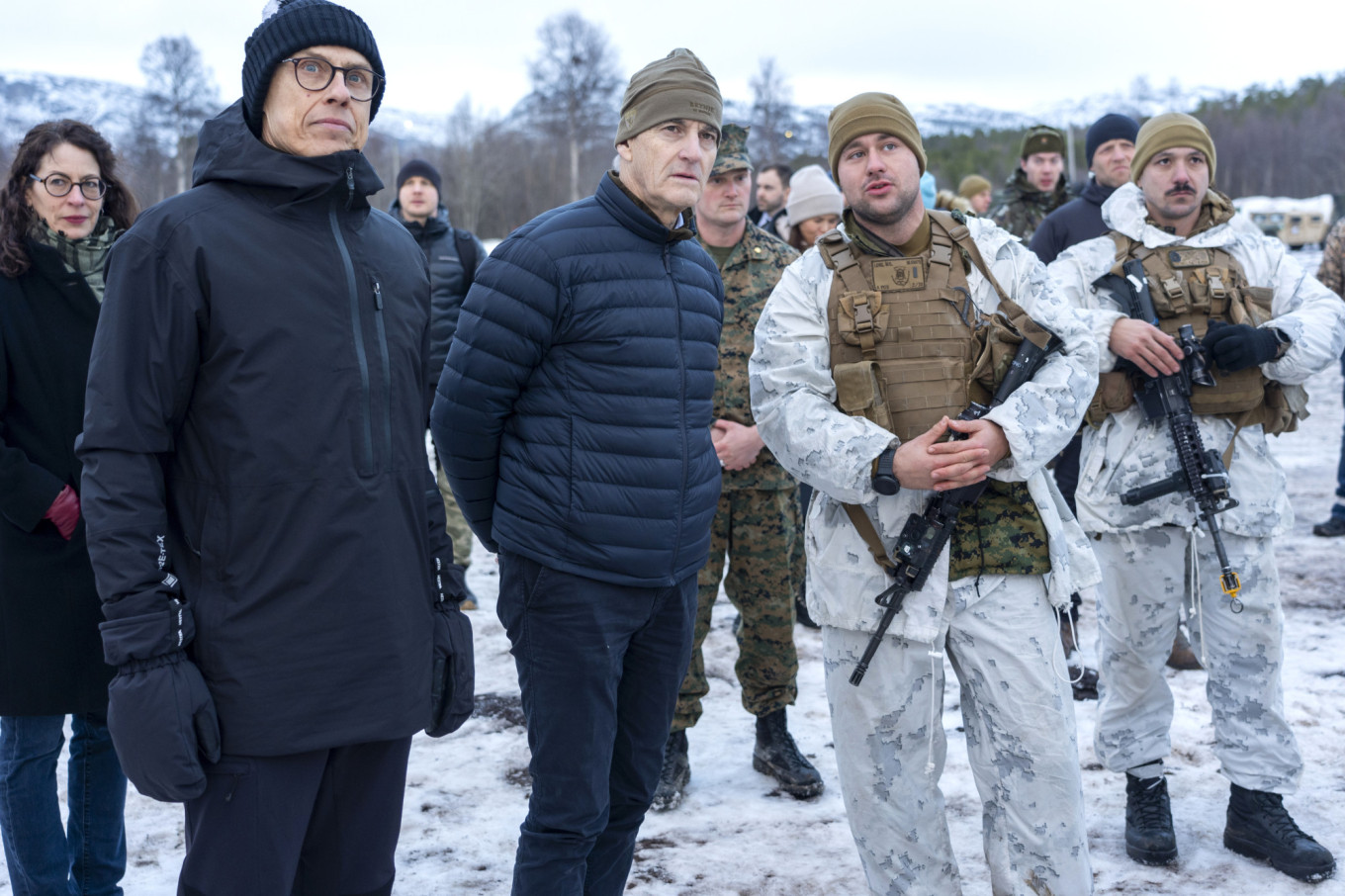 Finland's new president Alexander Stubb (left) seen attending NATO exercises in Norway.
Heiko Junge / AP / TASS
Finland's new president Alexander Stubb (left) seen attending NATO exercises in Norway.
Heiko Junge / AP / TASS
Volokitina moved to Finland over a decade ago with her boyfriend who, like her, holds dual citizenship.
Before the border shutdown, the young couple could visit their home region, northwestern Russia’s republic of Karelia, which hugs the frontier with Finland, relatively quickly by car. Today, traveling home is more complicated and expensive.
As a dual national, Volokitina also sees how the border issue and talk of “hybrid attacks” from Moscow are feeding into a recent trend in Finnish politics, where Russian-Finnish citizens are increasingly cast as potential security risks.
Nowhere else has that been more apparent than during last month’s presidential election which saw former prime minister and staunch Ukraine ally Alexander Stubb win the presidency, an office vested with the authority to shape and direct the nation’s foreign policy.
On the campaign trail, seven out of the nine presidential candidates, including the center-right Stubb, said they would support retroactively revoking dual nationals’ Finnish passports if they refused to give up their Russian citizenship, arguing that Putin is “adamant” about his readiness “to protect” Russian citizens living abroad.
Finland’s Interior Ministry is currently preparing a report, focusing on the issue of dual citizenship reciprocity, that could pave the way for that kind of move.
“These kinds of retroactive laws remind me of those in Russia,” Volokitina said, alluding to the frequent instances where Russian authorities prosecute individuals for breaching laws that were passed after the fact.
Heikki Patomaki, a political scientist at the University of Helsinki, said that suspicions toward Finnish-Russian citizens’ loyalty have been discussed in the media for years. But these concerns have taken on a new face amid the war in Ukraine and Moscow’s promise to create “problems” for Finland, he said.
“This is totally in line with a Manichaean understanding of the situation, of [viewing] this as a struggle between good and evil,” Patomaki said in an interview, explaining his interpretation of the government’s thinking. “So you have to choose what side you're on.”
“If you’re very suspicious of Russia’s activities, then you think that they might form some kind of a fifth column,” he added.
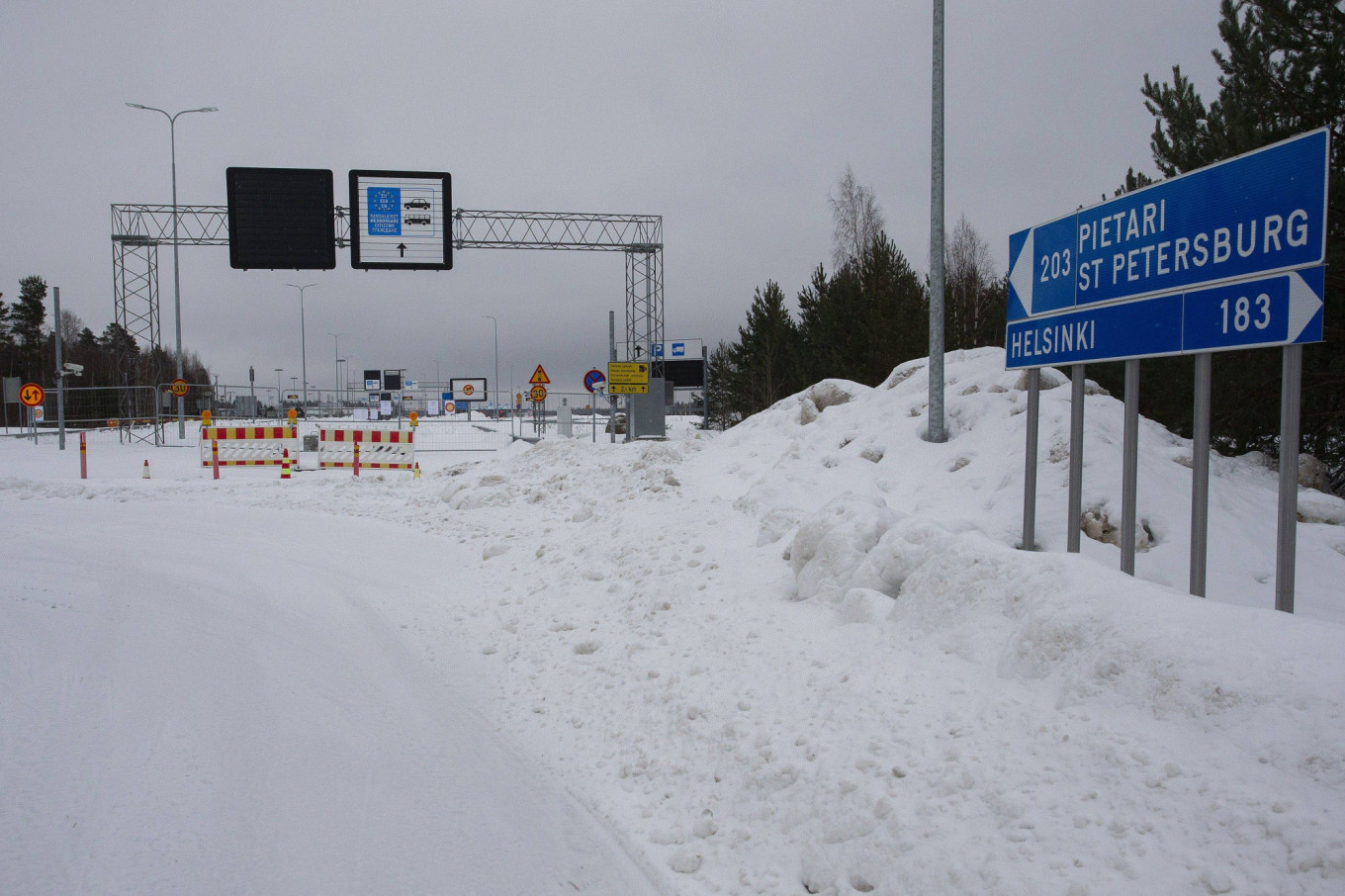 The closed Vaalimaa border crossing between Finland and Russia.
IMAGO / Lehtikuva
The closed Vaalimaa border crossing between Finland and Russia.
IMAGO / Lehtikuva
Still, renouncing Russian citizenship is no easy task. One must gather a large number of documents and show that they have no debts, criminal charges or unfulfilled military service obligations in Russia. They then need to present those documents at a government office or Russian embassy abroad.
Even when the process goes smoothly, it takes several months.
Those who openly criticize the Kremlin could face the additional risk of criminal prosecution if they enter a Russian embassy.
Bureaucracy aside, many dual nationals do not want to give up their Russian citizenship for reasons including family and friends who still live back home, professional connections, or simply the hope of one day being able to return to a more democratic Russia.
“Ironically, if you say you want to keep your Russian passport, people here call you a Putinist,” Volokitina said. “But I just want at least one of my countries to look after my interests as a citizen.”
Beyond re-evaluating dual citizenship policies, Finnish authorities are also looking into banning Russians from buying property, accusing Moscow of using “soft spots” to try to destabilize the country. A government decision on that is expected this spring.
With all those issues in mind, many Russian-Finnish citizens like Volokitina are left feeling caught in the middle of tectonic geopolitical shifts that they cannot control.
“The majority of people are pretty far away from politics, but now they are forced to absorb these realities, and they feel attacked,” said political scientist Margarita Zavadskaya in an interview at her office in Helsinki. “This has also made them potential prey for Russian propaganda narratives.”
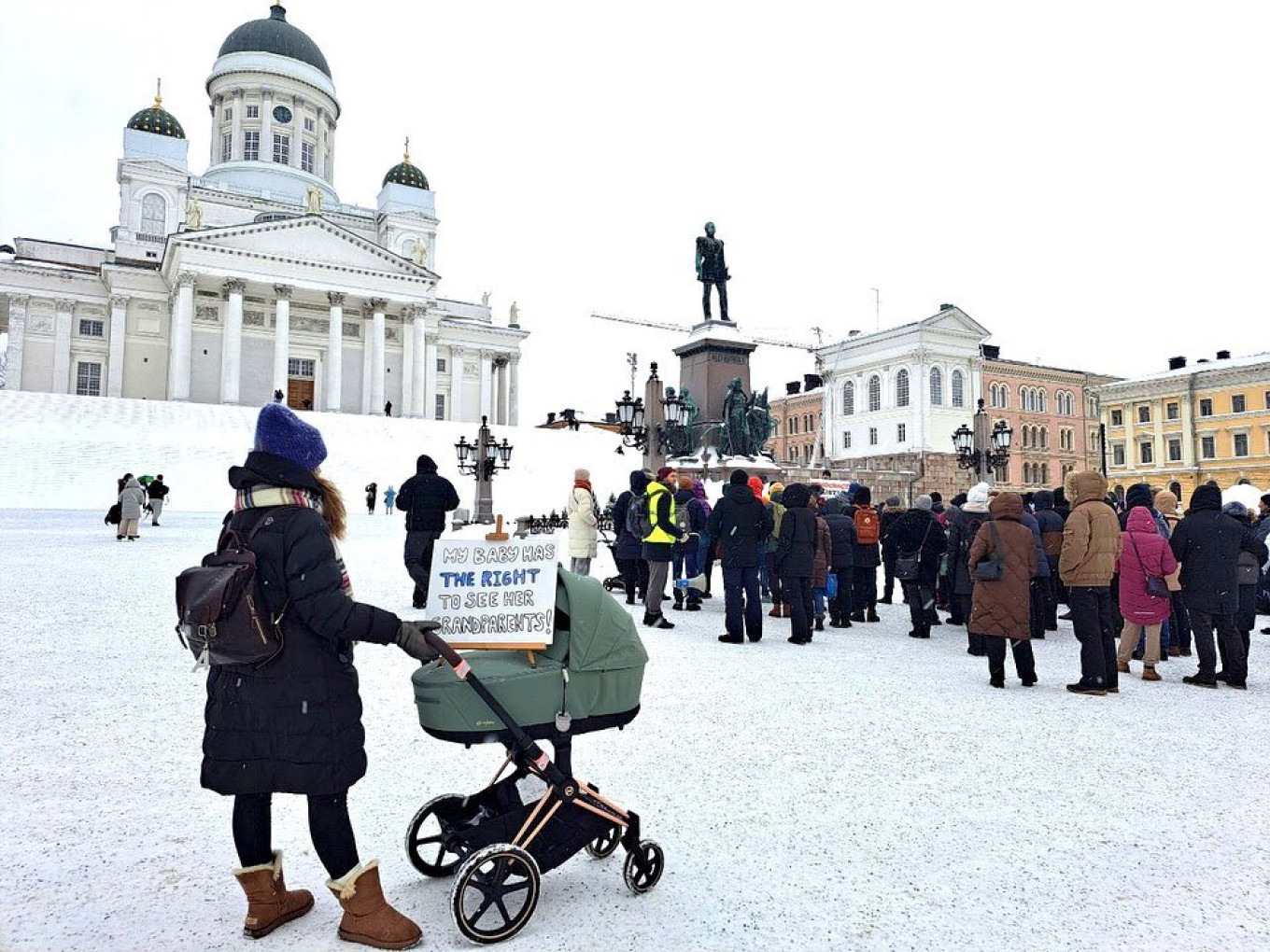 Members of the Alexander Society hold a demonstration in Helsinki.
aleksanterinliitto / Instagram
Members of the Alexander Society hold a demonstration in Helsinki.
aleksanterinliitto / Instagram
Zavadskaya, herself a Russian-Finnish dual national who moved to the country in 2018 for an academic position at the University of Helsinki, said many Russians living in Finland are likely to balk at openly criticizing the Finnish government on policies such as the border closure. Doing so could open them up to accusations that they are being “instrumentalized” by the Kremlin, she said.
Zavadskaya said she received “threats” from strangers who accused her of spreading Russian propaganda following an interview she gave to a local news outlet, which she claimed took her comments out of context and caused a sensation.
“I cannot travel back to Russia,” said Zavadskaya, who has openly criticized the invasion of Ukraine and often provides commentary and analysis to independent media banned inside Russia.
“The last thing I would expect is to be blamed for speaking my mind here in Finland, especially considering the risks that me and my family face.”
Some dual nationals choose to speak out anyway.
In January, a group of Russian-speaking activists calling themselves the Alexander Society gathered in central Helsinki to press the Finnish government to reconsider its decision to shut down the border with Russia.
The demonstration was small, but it was a rare visual reminder that the border closure is impacting lives, even if it seems far away and inconsequential.
It is unclear if any of the government’s current proposals, like retroactively revoking dual citizenship or imposing a ban on buying property, will ever see the light of day.
But they have nonetheless fed into a growing atmosphere of mistrust and uncertainty for Finnish-Russian nationals, who now wonder if they will have the same rights a year from now as they did when they first decided to make Finland their home.
For Volokitina, who became a citizen of the Nordic country several years ago, believing it offered the kind of political freedoms and quality of life she could not find in Russia, the sense is that she is less welcome today.
“It’s not the same Finland I came to 12 years ago,” she said.
 (1).png)
 9 months ago
31
9 months ago
31
